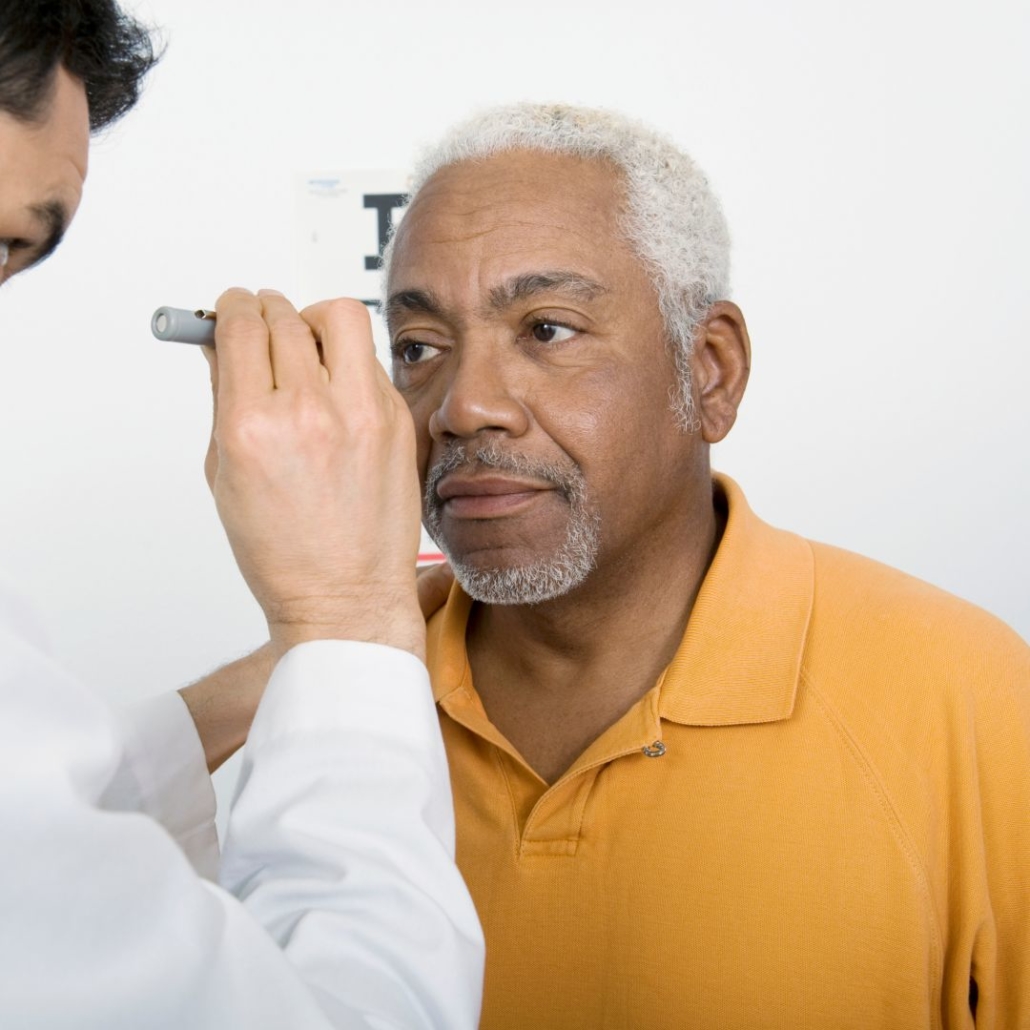What Causes Macular Edema?

There are certain eye conditions that we hear about relatively often. Cataracts, for example, or even glaucoma. As retinal specialists, we diagnose and treat more obscure problems, such as macular edema. Here, we discuss what this condition is, what causes it, and what we may do to protect eye health.
The macula is the central part of the retina, the thin layer of tissue that sits at the back of the eye. When light enters the front of the eye, it passes through the lens and the vitreous and lands on the retina. The retina processes light and delivers signals to the brain via the optic nerve. The brain processes these signals and forms an image. As the center of the retina, the macula processes finer vision, that which we use to read, write, and perform up-close tasks. Macular edema is the thickening or swelling of the macula that requires treatment so that vision is not disrupted or lost.
Why Macular Edema Develops
Macular edema results from damaged blood vessels in the retina. Damaged blood vessels can leak blood, fluids, and small amounts of fat. These can accumulate on the macula, causing thickening or swelling. Studies suggest that damaged blood vessels are a common side effect of diabetes. Macular edema is often considered a complication of diabetic retinopathy. However, other factors may contribute to this condition, including:
- Age-related macular degeneration
- Blockages in the small veins in the retina
- Inflammation of the uvea, a middle-eye structure
- Genetic disorders such as retinitis pigmentosa
- Side effects of certain medications
Treatments for Macular Edema
At this time, macular edema is not a curable condition. Doctors provide care to manage swelling in the macula and protect long-term vision. A retina specialist may reduce the thickness of the macula by injecting medication into this part of the eye. Alternatively, laser treatment may be administered to seal off leaking blood vessels. Treatments for macular edema do not reverse any vision loss that has occurred. However, they can stabilize the condition and prevent it from progressing.
If you are experiencing symptoms of a retinal disorder, it is important to consult with a specialist. We are proud to serve physicians and patients in Edina, Minneapolis, St. Cloud, and various other Minnesota cities. To locate an office near you, call (855) 515-2020.

